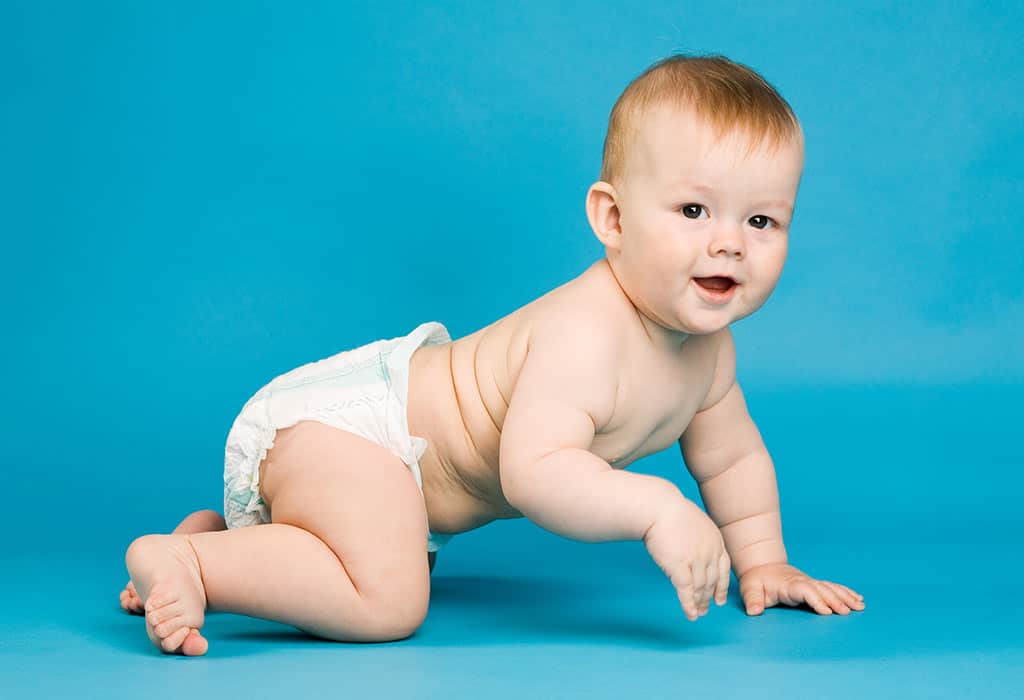
Table of Contents
Your baby's thirty-fifth week after birth
The 35th week marks 9 months of your baby’s birth and it also means it’s now been 9 months since pregnancy! Growth spurts are very common amongst babies at 35 weeks old and though you may, for yourself, only remember cleaning after your baby in the past 35 weeks, your baby, on the other hand, has achieved quite a lot of unforgettable milestones!
Your 35-week-old baby's development and physical growth
- Your baby’s motor skill development
By week 35, your baby’s fine motor skill development would have improved by bounds, and their grasp when they hold things will be stronger than ever. This means you can literally just hand them over a bottle and they will drink it on their own! Babies at this age will also be able to hold soft, lightweight finger foods from the plate on their own. It is recommended you encourage them to self-feed as much as possible since this will give them a sense of freedom and might also help them accept food better, leading them to eat more. Your child will be able to crawl around at a faster pace and may also start fully standing up on their own- albeit with some support from you or the furniture around them.
- Your baby’s sensory development
As a 35-week old baby, your infant will be listening to everything that is being spoken around them and very keenly at that. The baby babble will now be baby words as they try to imitate sounds and start saying simple words like ‘no,’ ‘baba,’ ‘mama,’ ‘dada,’ etc. They will also now make better sense of things and will start responding to easy yes/ no sentences in actions. For example, if you ask them for your toy in the words ‘give me your toy,’ you can expect them to respond with a ‘yes’ or ‘no’ or just giving/not giving the toy to you.
- Your baby’s cognitive skill development
Your 35-week old baby will be impressing you quite a lot with their developed cognitive skills- if you roll a ball over to them, they will give it back to you! Owing to the baby’s brain growth and development, they will now understand things better. For example, they might have cried uncontrollably a couple of times when you’d go to work in the weeks prior. Now, however, they may instead show understanding by not crying as they can also understand for themselves that you’re only going to go away for some time. At this point, they are also more likely to crawl to a toy and bring it for themselves instead of crying out and having you bring it to them. It is suggested that you speak a lot to your baby, talk to them through the feeds, and literally any time you are around them to help them associate various words to meanings.
- Your baby’s food habits
Along with a baby’s growth, at each step, the baby’s food habits are bound to change but at week 35, the change will be rather monumental, just like it was around 4 months ago when you first introduced semi-solid/pureed food. At this age, your baby may totally refuse to have breast milk due to their developmental changes, a situation often referred to as a ”nursing strike.” Through a lot of people might advise you to wean off your baby now, we suggest you first consult with your doctor since most experts recommended breast milk be fed to children at least up to the age of two years or until when weaning occurs naturally. Breastfeeding is most commonly recommended for feeding at night and solids during the day.
- Your baby’s sleep patterns
“Sleep regression” is the most common phenomenon babies are known to display at 35 weeks old but this is not the right term to use and we will tell you why. Even though, at 35 weeks old, your baby will suffer from disturbed sleep through the night and will often wake up in the middle of the night, crying for attention. Having established that, ‘sleep regression‘ is not the right term since it implies such a situation is occurring for the first time ever and you know that’s not true! Your baby would have exhibited such behavior multiple times already, especially each time they achieved a milestone like teething, crawling, etc. As a 35 week old baby, since they have developed their muscles and strength quite a lot, they will just be never sleepy and always ready to play! Co-sleeping by placing your baby in a baby crib or having them sleep on your bed next to you is the best you can do because your infant will be craving quite a lot of attention during sleep hours.
Your 35-week old baby's health
- Tests and vaccinations
Hepatitis B and polio vaccines will be assigned by the doctor for your baby at this point, if not administered already.
- The art of avoiding germs
While your baby’s hand-eye coordination develops and helps them pick food from their plate on their own, it also brings along a major risk of them picking up and mouthing literally whatever comes their way. As a 35 week old baby, your little one will be particularly interested in tiny objects and so, the threat increases manifold. This means that they will, much against your liking, may end up stuffing their mouth with floor-picked or even worse, carpet-picked germs. The adult 5-second rule? That does not exist for babies; they are on an it-is-good-to-eat-forever rule. Germs off the floor, needless to say, can cause some serious illness in infants – so how do we avoid the germs without restricting the baby’s movement? Step 1 is to not panic. Here is some good news: household dirt is typically harmless because the germs found on the ground don’t usually make babies sick. However, you could still invest in a non-toxic anti-germ spray to minimize the chances of contraction of diseases, especially more so in times of corona as today. You should also particularly try to keep all loose hazardous pieces like lego block off the ground as your crawling curious baby will most likely want to mouth it at the first opportunity.
Do Babies Need Exercise?
There has been quite a lot of debate around ‘if babies need to exercise.’ Well, let us tell you everything you need to know about baby exercises here for once and for all. Your baby really does not (obviously) need to hit the gym or indulge in any exhaustive exercises as long as they move around the house a lot on their own. For toddlers at 35 weeks old, we recommend you give them a lot of open space at home, make sure the edges are cushioned and encourage them to play and move around as much as they can. A baby’s movement is cardinal since it paves the way for healthy development.
SHAPE America, the Society of Health and Physical Educators, has also officially issued five guidelines for a healthy, active baby which you may want to check out.





